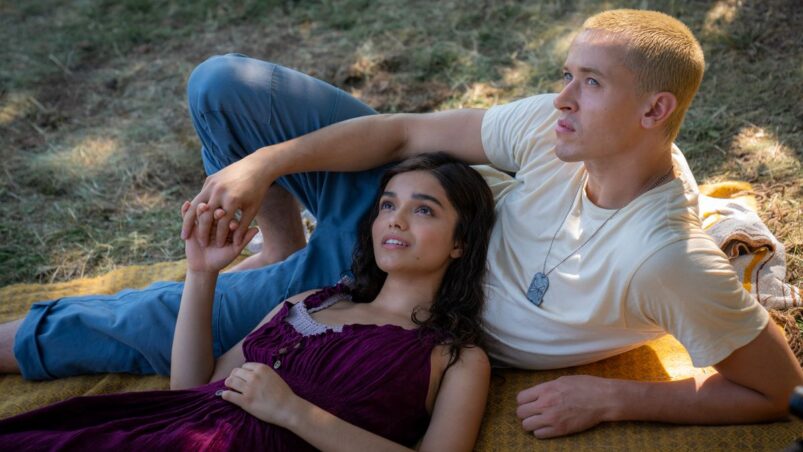Book adaptations are tricky things in the world of film criticism. Obviously, a book cannot be fully adapted in all its nuances, so there are two possible routes to take here: be a faithful adaptation, or take some risks and innovate. The second choice is more likely to alienate fans of the book, who bought a ticket to see the movie mainly because they want to see a book they’ve loved so much brought to existence on the big screen. However, on the other side of things, a faithful adaptation might mean the movie suffers a little as a film. The adaptation might leave certain things out since they know the book lovers will be able to put the pieces together, or they might try to stuff as much as they can into the screenplay, which results in the film feeling bloated.
This is exactly the predicament The Ballad of Songbirds and Snakes is facing. The movie wants to be a faithful adaptation, because all those onboard know that book fans are going to be the majority of people buying tickets. For those of us who grew up reading The Hunger Games and watching all the subsequent movies, the nostalgia of The Ballad of Songbirds and Snakes is too hard to resist.
However, the book itself is not the easiest to translate to the big screen, due to the style of the novel. The story is framed from Coriolanus Snow’s perspective, so we’re privy to his conflicting thoughts and feelings. While reading the novel, we know the truth of how he perceives others, and how every action he makes is with his own agenda in mind. He is never altruistic, and his desire for Lucy Gray Baird’s success isn’t really for her but for him.
Unlike the book, the movie doesn’t possess any internal monologue or narration that would give us insight into his interior. All we have are his actions and Tom Blyth’s fantastic acting to help us understand how the character ends up the way he does in The Hunger Games series. This is the main gripe of most critics, who felt that the third act is the weakest because it feels overstuffed and rushed, and Snow’s apparent sudden switch is difficult to understand. Wasn’t he a good guy? Why did he suddenly become a villain? Here’s the thing, he was never a good guy. Most of Snow’s actions were in service to himself and the Snow name. He was always performing, every single move forward heavily plotted and deliberate.
He takes such lengths in his mentorship of Lucy Gray so that she would trust him, which would allow him to manage her better. He looked at her as something that he owned, and lobbied for her success so that it would look good for him. His friendship with Sejanus is also heavily orchestrated to his own benefit. In the movie, it is Dr. Gaul who arranges for Coriolanus to go into the arena and fetch Sejanus, and it is actually something he’s very reluctant to do because he’s fearful of what might happen to him in the arena. When there comes a time where he has to choose between his friend’s life and his own ambitions, he has no problem sacrificing Sejanus to propel himself forward. He shows very little hesitation in all the murders he commits, because he rationalises his actions as survival. Coriolanus looks at the world and society as an arena, and he is a competitor who needs to do whatever it takes to emerge victorious.
His arrogance never made him consider that he would be caught cheating, or that he would have to deal with severe consequences because of it. Many are misled by the supposed Romeo and Juliet love story that they feel is built into the last act, because Snow requests to go to District 12 and even bribes a peacekeeper to get sent there, circumventing Highbottom’s plans. If he didn’t care for Lucy Gray, why would he do that? Well, he does care for her, just not enough to ever prioritise her above himself. The two of them went through a traumatic event together, and they both know what it’s like to go hungry and have to perform to survive. There’s a connection there, but it’s not love. What Katniss and Peeta shared, that’s love. Both make sacrifices for each other multiple times throughout the series, Peeta even overcomes tremendous brainwashing to love Katniss again.
So yes, there were opportunities for Snow to turn things around, to lead himself down a very different path, but he would never seize those opportunities because they would require him to forfeit control and the power he so desired. He is the titular snake, and if you didn’t see it, then he performed his role exceedingly well.
READ NEXT: 12 Movies Like The Hunger Games to Check Out
Some of the coverage you find on Cultured Vultures contains affiliate links, which provide us with small commissions based on purchases made from visiting our site.

